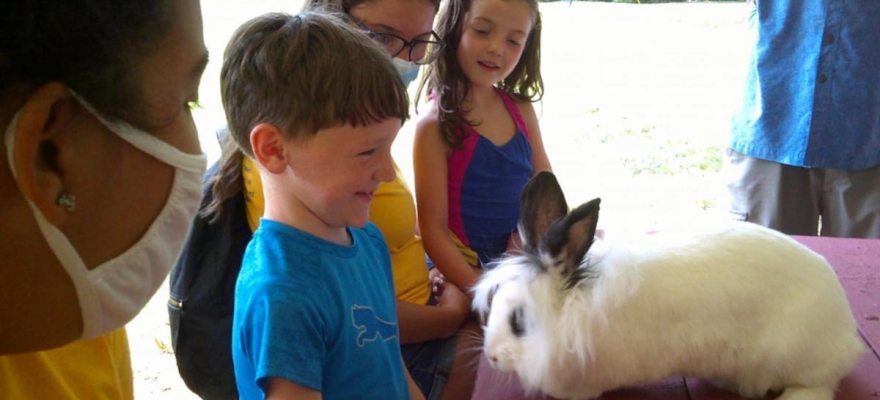
Sponsored Content provided by the JCC Lillian Schwartz Day Camp in Staten Island
The benefits of summer camp include fun and games, but camp is also an opportunity to learn life lessons that will help your child during the rest of the year. Campers will learn swimming, archery, photography, dance, and baseball, but a major reason why camp is good for kids is that it can teach them skills that will help them during the school year.
Summer Camp Teaches Kindness and Respect
Campers and counselors come from various backgrounds and cultures, and yet camp is a place to share a common experience despite these differences. Everyone plays tennis and takes swimming lessons—and learns how to coexist in harmony. Kids realize they must respect and work with others to accomplish their goals, which will encourage healthy school collaborations and interactions.
Camp Fosters Creative Expression
Camp encourages kids to take risks and express themselves in a safe and nurturing environment. For example, at the JCC Day Camp in Staten Island, kids can try their hand at bracelet-making or play a new sport in the annual “Maccabi Games.” This will make them more comfortable expressing themselves in school, where they might then try out for a school play or jump into graphic design classes.
Kids at Summer Camp Learn Patience and Persistence
Adjusting to a new setting, new friends, new schedules and activities takes patience and persistence. Students put these skills into action during school—by working through difficult math problems or practicing a second language. We may outgrow the ability to be campers, but we never outgrow the need for these significant lessons—especially in a learning environment
Summer Camp and Self-Reliance
Because their parents aren’t present, kids learn how to make decisions and come up with coping mechanisms. At camp, they must identify the resources that can help them meet personal and group goals, resolve conflicts, and find success—all essential abilities for school as well.
Campers Learn Socializing Without Social Media
There is no email or internet at camp—no PlayStation, Facebook or Tik Tok, which means kids are forced to interact on a basic human level. Learning how to relate in person, without the aid or disguise of social media, is crucial for classroom dynamics and for developing friendships during recess and after school.
Summer Camp Teaches Responsibility for Others
Beyond the buddies, baseballs, and bonfires lies the true value of the summer camp experience: a heightened sense of personal responsibility for the well-being of others. Studies by SADD (Students Against Destructive Decisions) show that young people who have attended summer camp are significantly more likely to feel good about their relationships and to take positive risks, such as volunteering for new clubs or performing community service.
Summer Camp Instills Self-Confidence
Camp is a time to achieve, take action and earn results. At the JCC Lillian Schwartz Day Camp in Staten Island, this might mean engaging in a game of gaga for the first time, practicing Jiu-jitsu or learning how to paint. As a result of hard work and achievement, campers become more confident in themselves and their abilities.
“While camp life is scheduled, it runs at a slower pace. Kids have time to reflect on who they are, who they want to be, how they may want to change the world,” says Tom Rosenberg, president and CEO of the American Camp Association.
Campers Learn the Science of Nature
Campers are surrounded by nature all day. They learn to appreciate and discover the great outdoors, which includes an education in math and science. At the JCC Lillian Schwartz Day Camp in Staten Island, the lush Henry Kaufmann Campgrounds serves as a backdrop for all activities. Kids have the opportunity to participate in a wide range of activities that involve science, technology, engineering, and math—like woodworking and Lego robotics.
Sometimes it’s hard for parents to send their little ones away to camp for the day, the week, the month, or the entire summer. But when they do, it’s clear that the lessons learned last far into their future adult years and, more immediately, help them in the classroom today.







